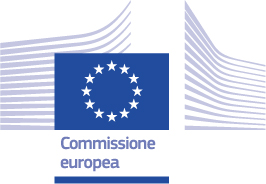Ethical and effective practices for AI and data in education
Descrizione del corso
Every day, “intelligent” machines are sorting your inbox, recommending music, vacuuming your floor, or teaching you Klingon – and schools are not exempt from their influence. The “intelligence” of these machines is mostly based on data. Can such machines also help us to support our students’ learning?
This course builds upon the success of the 2022 course “What Can You Do with Data in Your Classroom”. In this enhanced and updated version, we aim to empower educators with the knowledge and skills to effectively and ethically integrate data and AI tools into their teaching practices.
Participants will explore how data-driven approaches and AI tools can be used in education while enhancing the ability to critically evaluate these technologies. By the end of the course, educators will have the confidence to use data and AI responsibly to support student learning and improve assessment practices.
The course is offered by the European School Education Platform. Visit our website for more information.
Duration and workload
Start date: self-paced
End date: self-paced
Workload: 15-20 hours
This course is based on a version that ran from Monday, 17 February 2025, to Monday, 24 March 2025. The original course provided participants with opportunities to interact during a specific active timeframe of 5.5 weeks, exchange ideas and engage in a peer assessment. However, we recognise that not everyone was able to attend during the scheduled timeline.
To make the course accessible to a wider audience, we’ve developed this self-paced format. This version allows you to explore the content and complete the activities at your own pace, whenever it suits you best.
What the self-study format means
- Flexible schedule: You decide when and how to engage with the course materials. There are no deadlines, live sessions, or required meeting times.
- Independent learning: While the original course included discussions and peer reviews taking place in certain days and weeks, this format empowers you to work independently, using the same materials and guidance provided during the initial version. Please note that discussions in the forums and contributions on Padlets will not be moderated, allowing for a fully self-directed learning experience.
- Self-assessment: To replicate some of the reflective benefits of peer feedback, you will be encouraged to evaluate your own work using the provided assessment criteria.
Course competences
The recipient of this certificate has demonstrated proficiency of the following competences according to the digital competence framework of the European Commission's SELFIE for TEACHERs tool:
- Area 2 Digital resources: Managing and protecting at B2 level
- Area 3 Teaching and learning: Emerging technologies at B2 level
- Area 4 Assessment: Assessment strategies at B1 level
- Area 4 Assessment: Analysing evidence at B1 level
- Area 5 Empowering learners: Differentiation and personalisation at B1 level
For more information about the competences and the proficiency levels see the SELFIE for TEACHERs toolkit.
Pubblico di destinazione
The course is aimed at primary and secondary school teachers including those working at vocational education and training schools who wish to learn more about the use of data in the classroom, with a particular focus on the role of artificial intelligence. No prior knowledge of the topic is required.
Obiettivi formativi
- Define and understand key concepts, including data literacy, big data, AI, and learning analytics.
- Explore recent developments in AI and their implications for teaching and learning.
- Evaluate the ethical considerations of using data and AI in education, focusing on critical data literacy.
- Learn to use data to personalize learning and improve formative and summative assessments.
- Develop practical strategies to integrate data and AI tools into their teaching in a meaningful and ethical way.
Questo contenuto è offerto dalla Commissione Europea. La Commissione Europea è il braccio esecutivo politicamente indipendente dell'Unione Europea. È l'unico responsabile dell'elaborazione delle proposte di nuova legislazione europea e attua le decisioni del Parlamento europeo e del Consiglio dell'U

Programma
- How this course works
- Module 1: From Data Basics to AI Insights: Building Data Literacy for Educators
- Module 2: Ethical considerations in data use and AI
- Module 3: Using data for personalised learning
- Module 4: Using data for formative and summative assessment
- Final activity (self-paced)
- Certificate of completion (self-paced)


